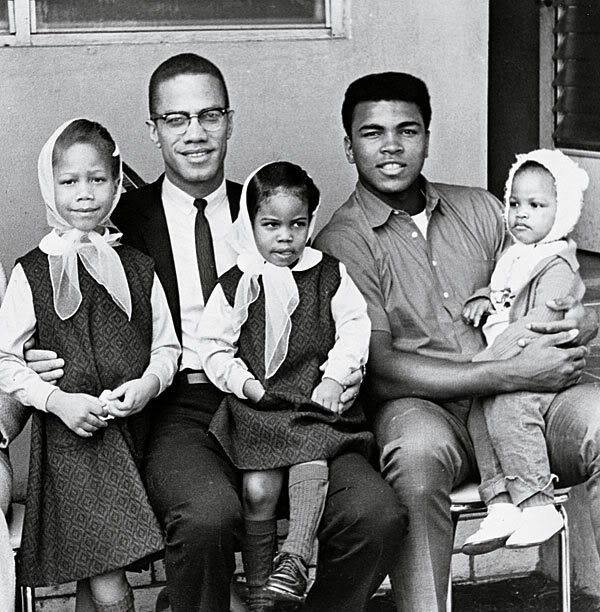
Recently, I posted photos of Malcom X and Muhammad Ali on my Facebook page, along with a comment that these were good fathers. I got some strong reactions, not all of them positive.
To my father’s and my generation, these men were heroes, because they weren’t afraid to stand up against the unjust system that kept us in a second class citizen category. My father came back from WWII, having helped re-wire Nagasaki, and was unable to get employment as an electrician because he wasn’t allowed in the union, solely on the basis of his race. Malcom and Muhammad actively, publicly, said, “No. We’re not going to take this treatment anymore.” Even if you didn’t agree with everything they stood for, you had to admit that they had courage and integrity.
Yes, they embraced Islam. They were looking for a more genuine faith experience and at that time, there were no Orthodox people reaching out to evangelize them and bring them to the true faith, even in an era in which we had Saints walking the streets of North America. Consider that Islam was an alternative to segregated Christianity. Malcom had to go to Mecca to see the diversity of races in one faith community, and he was blown away when he did. Certainly, he wouldn’t have found this at home. Who knows in what direction his profound belief in God would have taken him had he not been murdered? In spite of what some think, he was not a thuggish, terroristic figure, but rather a man who spoke his mind in a day where most African American men, while they probably agreed with what Malcolm said, stayed tight-lipped and subservient. Malcolm was the classic “uppity Negro.”
We judge others, and we sometimes fear them, because we lack empathy for the situations in which they find themselves. Sometimes, if we are not part of a minority community, we think we can understand their concerns, when we simply can’t. (A community, according to the dictionary, “is a group of people with a common characteristic or interest, living together within a larger society.”) It’s just not possible to know what it’s like to walk around in another’s skin. However, when we acknowledge this and confess our ignorance, we then have the opportunity to listen, and learn.
Let us reserve judgement and examine ourselves. To say, “I don’t understand,” or perhaps, even to discern one’s own fearfulness, is more spiritually nourishing and may lead to a richer, more authentic life.
This is exactly the way I feel, how did you know?
Thanks for the post.
LikeLike